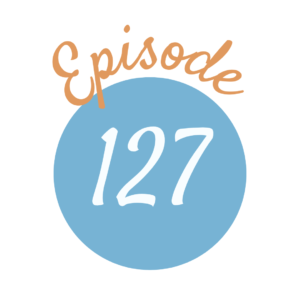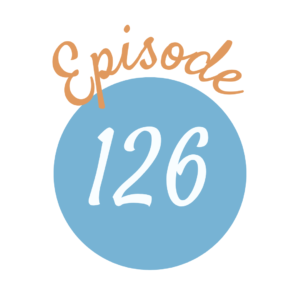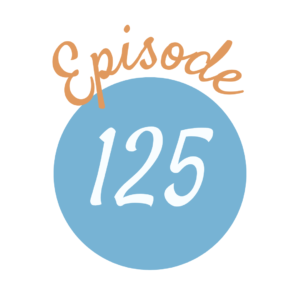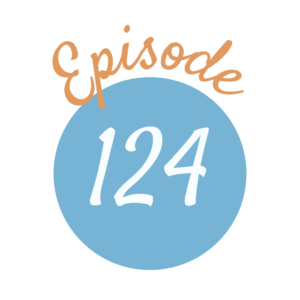
Listen Now:
Home Education (Volume 1), Part III (Habit is Ten Natures); Part II (The Out-of-Door Life of Children)
The Education of an Only Child by Mrs. Clement Parsons (PR vol 12, p. 609)


Listen Now:
Home Education (Volume 1), Part III (Habit is Ten Natures); Part II (The Out-of-Door Life of Children)
The Education of an Only Child by Mrs. Clement Parsons (PR vol 12, p. 609)

Listen Now:
“If mothers could learn to do for themselves what they do for their children when these are overdone, we should have happier households. Let the mother go out to play! If she would only have courage to let everything go when life becomes too tense, and just take a day, or half a day, out in the fields, or with a favourite book, or in a picture gallery looking long and well at just two or three pictures, or in bed, without the children, life would go on far more happily for both children and parents. The mother would be able to hold herself in ‘wise passiveness,’ and would not fret her children by continual interference, even of hand or eye––she would let them be.” (3/33-34)
The Chronicles of Narnia, C.S. Lewis (Please note, link is to the *wrong* order)
For the Children’s Sake, Susan Schaeffer Macaulay
Golden Hours of Delight Retreat

Listen Now:
“By-and-by there is the fruit, and the discovery that every tree––with exceptions which they need not learn yet––and every plant bears fruit, ‘fruit and seed after his kind.’ All this is stale knowledge to older people, but one of the secrets of the educator is to present nothing as stale knowledge, but to put himself in the position of the child, and wonder and admire with him; for every common miracle which the child sees with his own eyes makes of him for the moment another Newton.” (1/54)
“With regard to the horror which some children show of beetle, spider, worm, that is usually a trick picked up from grown-up people. Kingsley’s children would run after their ‘daddy’ with a ‘delicious worm,’ a ‘lovely toad,’ a ‘sweet beetle’ carried tenderly in both hands. There are real antipathies not to be overcome, such as Kingsley’s own horror of a spider; but children who are accustomed to hold and admire caterpillars and beetles from their babyhood will not give way to affected horrors.” (1/58)
“Again, the evolution of the individual is checked at the point of mechanical perfection. Good mathematicians, clear-headed scientists, may be turned out; but what place is there for the higher forces of humanity, aspiration, speculation, devotion? We have reason to keep watch at the place of the letting out of waters, that is, the psychology upon which our educational thought and action rest. There is delightful certitude in the results of anthropometrical research. You may predicate with certainty given facts about a child from the way in which he stretches out his arm. Good pathological work is being done, and many a child’s hidden weakness is revealed and consequently brought under curative treatment by the tests which it is now possible to apply. The danger is that we should take a part for the whole and allow this ‘new psychology’ to usurp the whole field of education.” (3/55)
“Like all great discoveries, this, of a soul, was, in all its steps, marked by simplicity. Miss Sullivan had little love for psychologists and all their ways; would have no experiments; would not have her pupil treated as a phenomenon, but as a person. ‘No,’ she says, ‘I don’t want any more Kindergarten materials . . . I am beginning to suspect all elaborate and special systems of education. They seem to me to be built up on the supposition that every child is a kind of idiot who must be taught to think, whereas if the child is left to himself he will think more and better, if less showily. Let him go and come freely, let him touch real things, and combine his impressions for himself, instead of sitting indoors at a little round table, while a sweet-voiced teacher suggests that he build a stone wall with his wooden blocks, or make a rainbow out of strips of coloured paper, plant straw trees in bead flower-pots. Such teaching fills the mind with artificial associations that must be got rid of before the child can develop independent ideas out of actual experiences.'” (1/195-96)
School Education (Volume 3), Chapter 6
Home Education (Volume 1), Part V, Chapters 2-3
An Essay Towards a Philosophy of Education (Volume 6), pp. 114-118
Richele’s Mathematics Guide and DVD Bundle
Elementary Arithmetic Series, Book I
Irene Stephens’ Article On the Teaching of Mathematics to Young Children

Listen Now:
Jan Bloom’s Books (Volume 1 and Volume 2)
The Story of Geronimo, Kjelgaard
Children’s Preservation Library (Michelle’s Library in Michigan)
Living Learning Libraries (Michelle’s Library in Florida)
Living Books Lady Database (Michelle’s database)
(How to Recognize ‘Living Books’ (Episode 7)
Charlotte Mason Soiree Retreat
List of Living Libraries around the country
Robin Pack’s Library (and list there)
Charlotte Mason in Community Library List
Reshelving Alexandria FB Group and Website
Living Books Library’s “Top Picks” Lists
Homeschool Librarians’ Conference Package
 Charlotte Mason offered guidance on practical issues of all kinds and A Delectable Education’s Q&A podcast episodes are our attempt to apply her wisdom to your own questions of understanding and practice. This week: dealing with the public library, when mother has special
Charlotte Mason offered guidance on practical issues of all kinds and A Delectable Education’s Q&A podcast episodes are our attempt to apply her wisdom to your own questions of understanding and practice. This week: dealing with the public library, when mother has special
learning difficulties, and when a child should officially begin formal lessons are the particular questions addressed.
Listen Now:
“Let me repeat, that I venture to suggest, not what is practicable in any household, but what seems to me absolutely best for the children; and that, in the faith that mothers work wonders once they are convinced that wonders are demanded of them.” (1/44)
” In this time of extraordinary pressure, educational and social, perhaps a mothers first duty to her children is to secure for them a quiet growing time, a full six years of passive receptive life, the waking part of it spent for the most part out in the fresh air.” 1/43
“Bobbie had his first lesson yesterday–on his sixth birthday. The lesson was part of the celebration. By the way, I think it’s rather a good plan to begin a new study with a child on his birthday, or some great day; he begins by thinking the new study a privilege.” (1/211)
“Children are not admitted to the [Parents’ Union School] under six years of age; they may be admitted at any time except between August 1st and September 15th.” (From Suggestions sent out with the programmes)
“All children should spend 2 years in Form IA” (Note on all Form I programmes)
“In grammar and in mathematics there must be no gaps. Children must go on from where they left off, but they will be handicapped in the future unless they can do the work set for this form.” (Note on all the programmes)